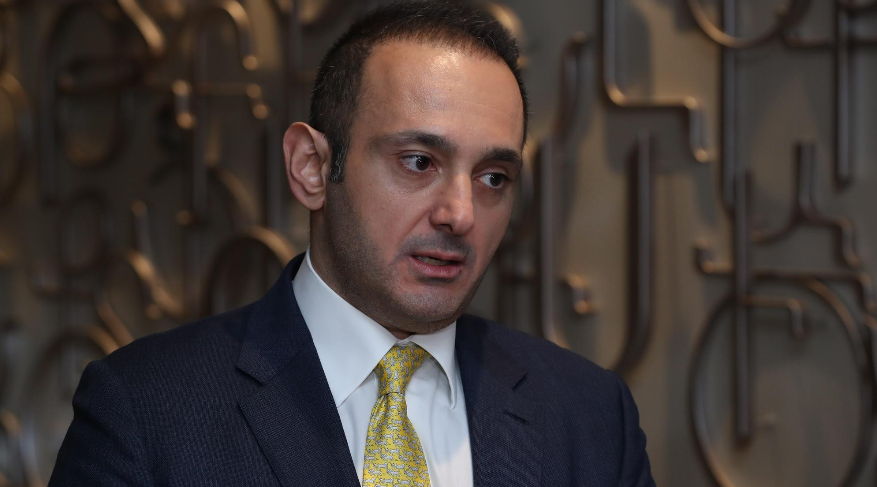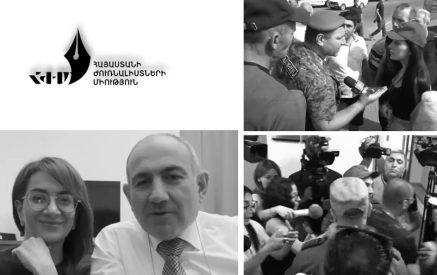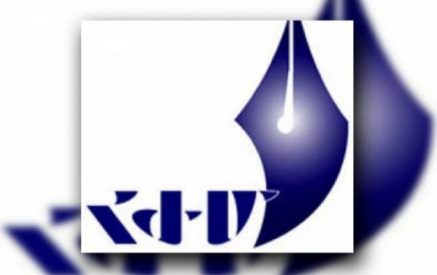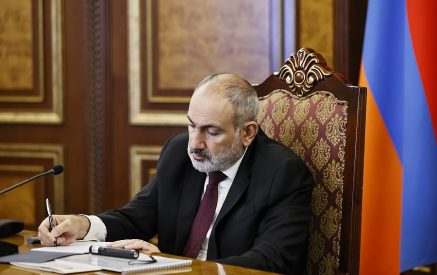An Armenian law-enforcement agency has issued an international arrest warrant for the former head of a state fund that was closed last year after failing to attract major foreign investment in Armenia.
Prime Minister Nikol Pashinian’s government set up the Armenian National Interests Fund (ANIF) in 2019 in an effort to not only lure foreign investors but also promote Armenian exports and support local businesses. ANIF clearly failed in that mission, leading the government to liquidate it in August 2025.
A year before that decision, a corruption investigation was launched into the fund’s four-year activities that reportedly cost taxpayers at least 10.7 billion drams ($27.3 million). Armenian opposition leaders have portrayed that as proof of government corruption.
Davit Papazian, ANIF’s former executive director, was recently charged with money laundering, abuse of power and forgery of documents. The Investigative Committee again shed no light on the accusations when it announced the arrest warrant for Papazian on Friday.
Read also
Papazian’s current whereabouts are unknown. He is believed to have left Armenia months before his indictment and has still not commented on it.
Early this year, Papazian was appointed to the governing board of the U.S. and Israeli-backed Gaza Humanitarian Foundation (GHF) widely blamed for the reported deaths of at least 1,800 Palestinians in the besieged Gaza Strip. Last month, the London-based Arab Organization for Human Rights (AOHR) appealed to Armenian prosecutors to investigate Papazian’s role in GHF’s highly controversial food distribution in Gaza.
The AOHR claimed that he “may have been involved in, or facilitated, actions that amount to war crimes and crimes against humanity.” The Office of the Prosecutor-General in Yerevan pledged to look into the appeal. It has made no further statements since then.
Also facing corruption charges is Bella Manukian, the former head of an ANIF subsidiary that invested in 2023 over 1.5 billion drams ($3.8 million) in an obscure company newly registered in the U.S. state of Delaware. The company, CFW, is understood to have effectively stopped operating a year later. Its chief executive, Karine Andreasian, is the third indicted suspect in the case.
Andreasian is a close friend of Yerevan Mayor Tigran Avinian’s wife, Mariam Pahlavuni. She secured the government funding, significant by Armenian standards, at a time when Avinian headed ANIF’s board of directors.
Not surprisingly, Avinian has faced corruption allegations ever since the suspicious investment was exposed by the investigative publication Hetq.am early this year. He has denied them.
The Investigative Committee remains unwilling to clarify whether it has interrogated the mayor, who is a senior member of Pashinian’s Civil Contract party. ANIF also invested in 960 million drams ($2.5 million) in another company owned by a school classmate of Avinian.
Mihran Bulghadarian, a legal expert and former prosecutor working for Armenia’s leading anti-corruption watchdog affiliated with Transparency International, deplored the lack of official information about Avinian’s status in the ongoing probe.
“Even if Tigran Avinian was not complicit in any wrongdoing, there has to be some statement to that effect [by the investigators,]” he told RFE/RL’s Armenian Service.
Pashinian described ANIF’s questionable operations as a “disgrace” when he spoke at a news conference this spring. But he stopped short of blaming the Yerevan mayor for them.
Although the premier has repeatedly claimed to have eliminated “systemic” corruption, no large-scale foreign investment projects have been launched in Armenia during his tenure. What is more, Pashinian’s government is now facing massive lawsuits by a number of foreign investors who have done business in the country.
ANIF’s most notable achievement was a 2021 deal with a company from the United Arab Emirates (UAE) that pledged to build Armenia’s first massive solar power plant. The $174 million project was subsequently put on hold for still unknown reasons, however.


























































